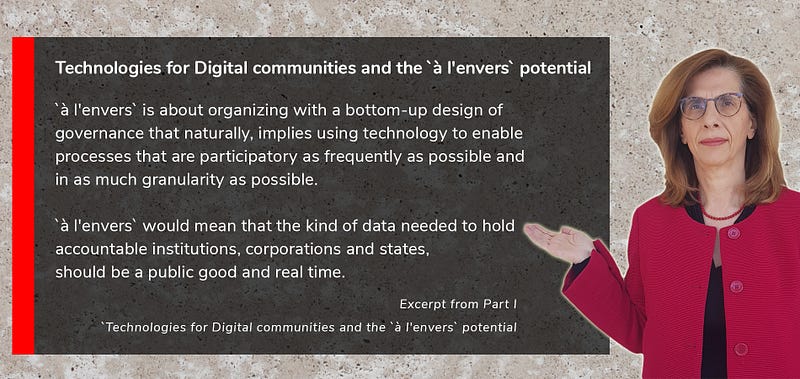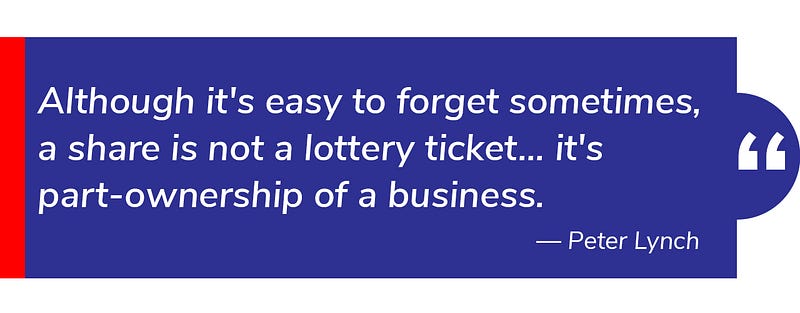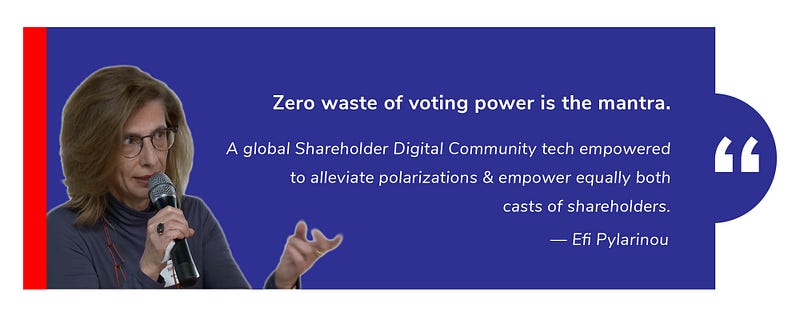Empowering Digital Shareholder Communities Through Technology
Written on
Chapter 1: Understanding Digital Shareholder Communities
In this entry, I will delve into a specific and well-established type of digital community: shareholder groups. The focus is on the untapped potential of these communities and whether digital advancements have influenced grassroots governance design.
Most individuals find themselves part of a shareholder group simply by owning shares in a company, be it private or public. Personally, I must admit that I have never utilized technology to engage with this digital community. This realization drove me to investigate existing technologies that acknowledge these inherently global and decentralized shareholder communities.
For every company out there, there exists a corresponding digital community of shareholders. However, this community largely remains disconnected, consisting mainly of two groups: individual shareholders and institutional investors.
Historically, retail shareholders have often felt marginalized in these spaces, primarily due to intermediaries like Schwab or Vanguard, especially when dealing with indirect shareholding through vehicles like ETFs. For those who own shares in a single entity, the experience surrounding voting agendas is not only outdated and paper-based but also fraught with delays and poor data for informed decision-making.
In instances where retail investors engage with a virtual shareholder community via a fund or similar vehicle, they often unwittingly cede their voting power to the intermediary managing their investment. This has resulted in a concerning concentration of voting influence among a handful of major asset managers: BlackRock, Vanguard, and State Street. Despite advancements in technology facilitating stock ownership, the core essence of being a shareholder has been overlooked.
Fintech has failed to communicate that a share signifies a fractional ownership in a business. Moreover, it has not fostered a cohesive virtual shareholder community aimed at maximizing value collaboratively. Available tools to boost participation are scarce. Paradoxically, there are more trading apps that perpetuate the notion of shares being akin to lottery tickets, while others automate investing, thus perpetuating the agency problem of delegating voting decisions to firms like Vanguard.

Where is the gamified participation for retail shareholders in investing apps? Why do we settle for praising companies that hold shareholder meetings on platforms like Zoom or Clubhouse as progressive steps toward transparency? Such practices are primitive in 2021.
Retail investors are increasingly gaining traction in Western markets, primarily due to their ability to band together on platforms like Reddit, showcasing their trading prowess to institutional communities. It’s evident that digital communities are uniting from the grassroots level to contend against other virtual communities.
To counteract the growing divide between retail and institutional shareholders, we must harness technology. I advocate for the development of tools that bridge this gap, empowering both groups equally. In essence, we need tech solutions that enhance the rights of all shareholders, allowing everyone to influence the voting agenda and participate in voting processes seamlessly.
Notifications about company issues and voting items should be easily accessible, with options for delegating voting power to trusted representatives. Furthermore, a ranking system for such delegates could enhance accountability.

Investors should have unfettered access to critical information from the companies they invest in, along with transparency regarding voting practices. For instance, when I invest in an ARK ETF or QQQ, I want an app that clearly illustrates how my voting rights are being exercised. Major asset managers should embrace this technology, utilizing it as a competitive advantage. Share ownership should extend beyond short-term financial gains; it must also encompass sustainable and ethical business practices. This growing awareness compels us to hold accountable both the agents managing our investments and the companies in which they invest.
The term "à l’envers" for shareholders encapsulates the need to create a digital community that holds both companies and their investment managers accountable.
Research indicates that a few companies are stepping up to offer such services, and now more than ever, we need to shine a light on them. One notable example is Profile Software, which recently launched the ‘Profile Vote’ portal—an online voting system that complies with the Shareholders Rights Directive (SRD II), enhancing transparency and facilitating remote participation in corporate events.
Proxymity, established in 2020 by Citibank, has garnered industry support from other major banks like BNY Mellon and JPMorgan. Their digital voting platform, ProxymityVP, addresses the inefficiencies present in the ecosystem, where the average number of participants is only seven.
The introductory video for Proxymity is definitely worth a watch as it underscores these inefficiencies. Recently, they announced a partnership with Computershare and Link in the Irish market to digitize these processes further.
Another standout is Say Technologies, which aims to serve both retail and institutional investors with a user experience rooted in fintech principles and API integration. I discovered them through their collaboration with DriveWealth, a leading fintech custodian in the U.S. They are already utilized by companies like ArkInvest, Acorns, Sofi, and Fidelity, with Plaid facilitating ownership verification.
While this list is not exhaustive, it marks the beginning of a significant trend in shareholder engagement. The pressing question remains: who will bear the cost of these advancements?
Disclosure: None of the companies mentioned are my clients.
Part I — Technologies for Digital Communities and the 'à l’envers' Potential
[1] In the 1960s in the U.S., individual investors held over 80% of the stock market, primarily in blue-chip stocks. This dynamic shifted significantly with the introduction of 401(k) plans and the rise of large fund managers.

The first video provides insights into the evolving landscape of collaborative technology and democracy, highlighting the future possibilities for digital communities.
The second video discusses the importance of building technology tailored for specific communities, as emphasized by Morgan DeBaun, showcasing how such initiatives can empower collective shareholder action.